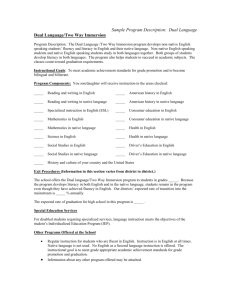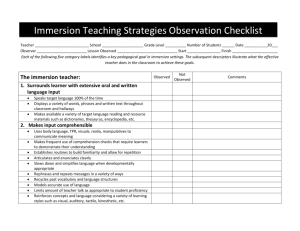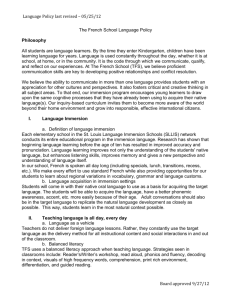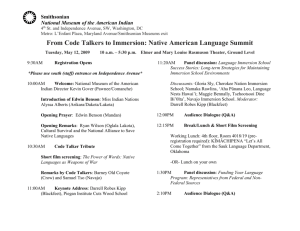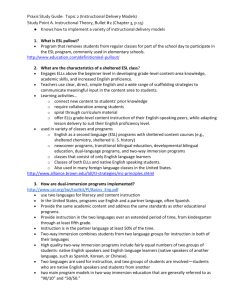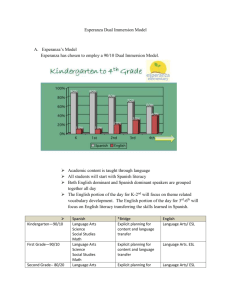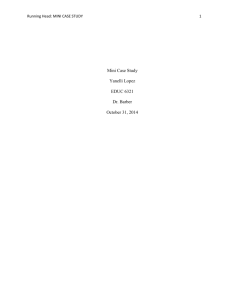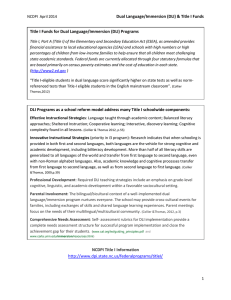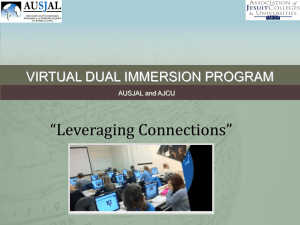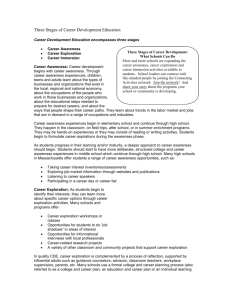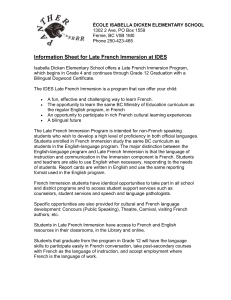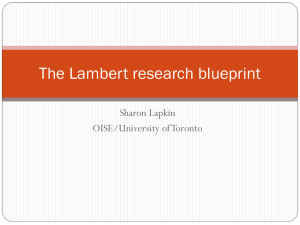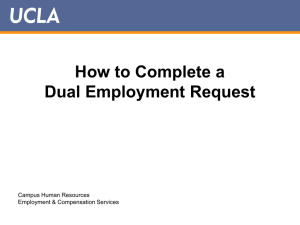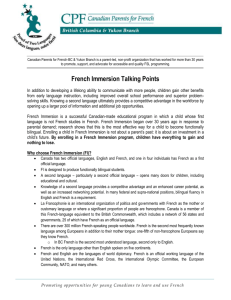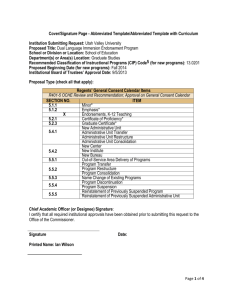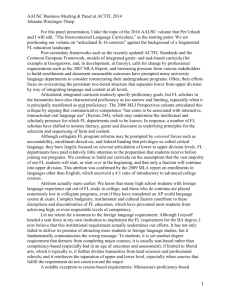Dual Language Immersion
advertisement
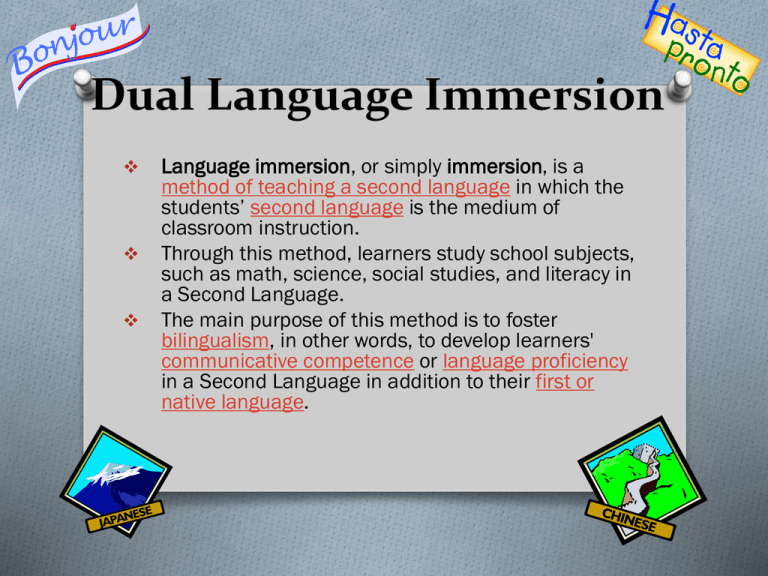
Dual Language Immersion Language immersion, or simply immersion, is a method of teaching a second language in which the students’ second language is the medium of classroom instruction. Through this method, learners study school subjects, such as math, science, social studies, and literacy in a Second Language. The main purpose of this method is to foster bilingualism, in other words, to develop learners' communicative competence or language proficiency in a Second Language in addition to their first or native language. Why Dual language Immersion? As we are living in a globalized world, bilingual education is receiving more acceptances in the United States and other countries as well. With a new name, fresh face and increasing numbers of American families are embracing dual language immersion. Here are five reasons why dual language immersion programs are becoming so popular: Why Dual language Immersion? 1. BILINGUALISM FOR ALL - Dual language immersion is an enrichment model that challenges all students to become fluent in two languages. There is no translation. Native English speakers and ELLs learn a second language together. 2. CLOSING THE ACHIEVEMENT GAP: Superior SAT scores and standardized testing. ELLs become more fluent in English when they learn to read in their primary language. 3. HAPPY KIDS: It's really fun for our students because their brain gets to work with two different languages, and their tongues get to do two different sounds. 4. POSITIVE SCHOOL CULTURE: The effectiveness of dual language education extends beyond academic outcomes. The entire school community benefits when multiple languages and cultural heritages are validated and respected. Friendships bridge class and language barriers. Opens the door to other cultures and helps a child understand and appreciate people from other countries. Parents from both language groups participate more actively in schools. 5. COMPETITIVE JOBS: Increases job opportunities in many careers where knowing another language is a real asset. Will a Second Language Interfere With our students’ English Ability? O In most cases, learning another language enhances a child's English ability. Children can learn much about English by learning the structure of other languages. Common vocabulary also helps children learn the meaning of new words in English. O In fact, children enrolled in foreign language programs score statistically higher on standardized tests conducted in English. A number of reports have demonstrated that children who have learned a second language earn higher SAT scores, particularly on the verbal section of the test. One study showed that by the fifth year of an immersion program, students outperformed all comparison groups and remained high academic achievers throughout their schooling. Questions & Answers Web sites: O www.wabewa.org O YouTube videos: Dual Language Immersion in Tacoma, WA Cool Links: http://wsunews.wsu.edu/pages/publication s.asp?Action=Detail&PublicationID=17167 http://www.k12.wa.us/WorldLanguages/Du alImmersion.aspx
